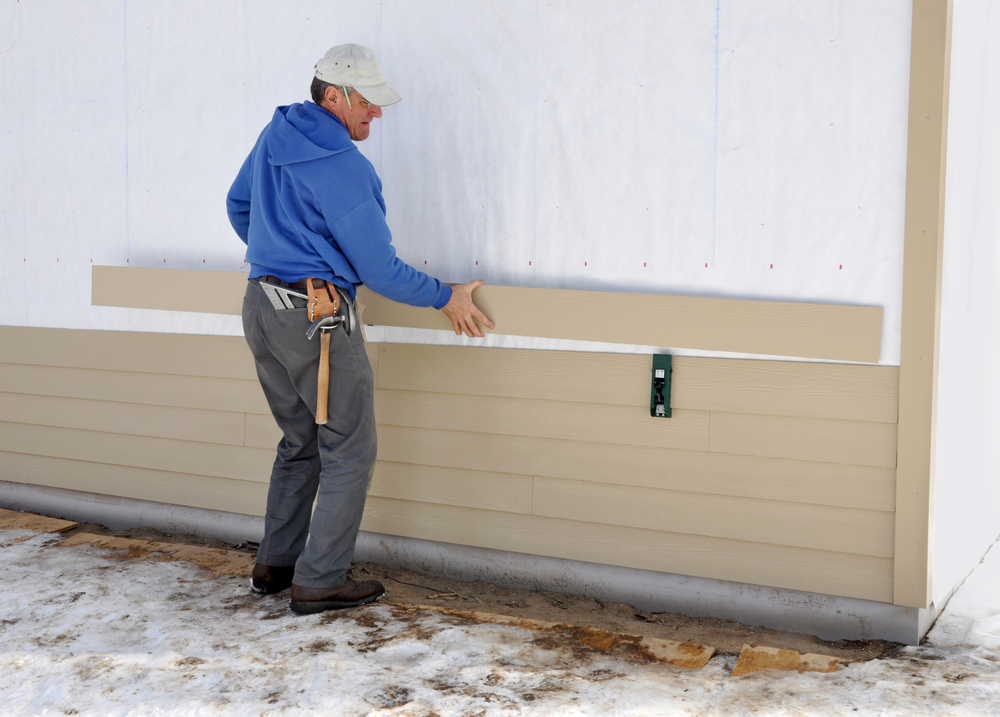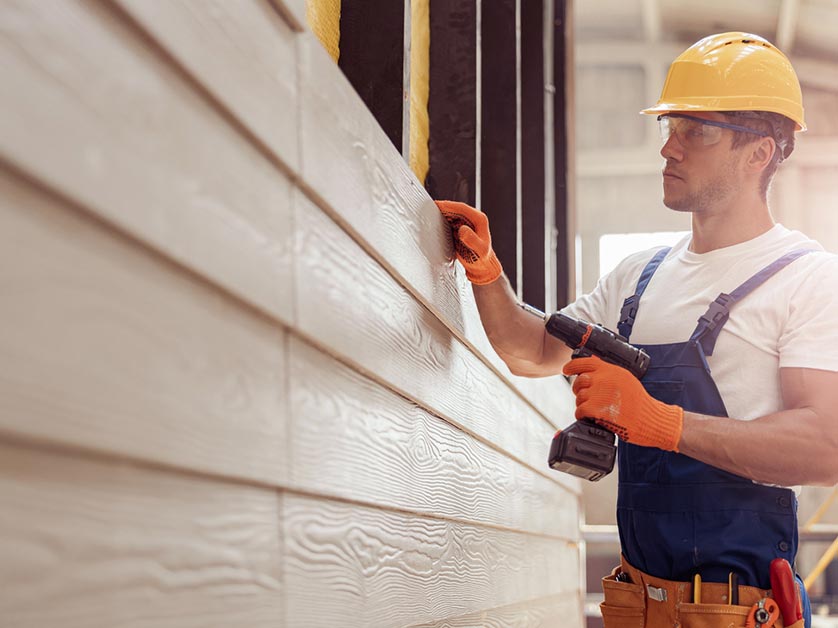Morris Siding Contractor Committed to Excellence in Every Project
Morris Siding Contractor Committed to Excellence in Every Project
Blog Article
The Vital Overview to the Various Kinds Of Siding and Their Special Advantages
In the realm of home improvement, selecting the right house siding is a vital choice that affects both aesthetic appeal and useful efficiency. With so lots of choices to think about, which exterior siding material truly stands out for your details task?
Wood Exterior Siding
Wood house siding, a preferred selection for household outsides, provides a timeless aesthetic that incorporates all-natural charm with structural honesty. This home siding material is available in numerous styles, consisting of clapboard, roof shingles, and board-and-batten, allowing home owners to personalize their façade to match their layout choices. Wood house siding is usually crafted from resilient varieties such as cedar, redwood, or yearn, which are understood for their strength and ability to endure ecological stressors.
Among the main advantages of wood exterior siding is its superb insulation properties, which can add to energy effectiveness and lower home heating expenses. In addition, wood home siding is biodegradable, making it an eco-friendly option when sourced sustainably. Normal upkeep, including paint or discoloration, can prolong its life expectancy and enhance its look, permitting property owners to protect the all-natural appeal of the timber.
However, prospective downsides include vulnerability to parasites, rot, and weather damage, requiring ample treatment and maintenance - morris siding contractor. In spite of these worries, when properly cared for, wood home siding can give a sturdy and gorgeous service that improves the personality of a home while using a cozy, inviting atmosphere

Vinyl House Siding
Plastic siding has become a leading option for homeowners seeking a low-maintenance outside choice that integrates toughness and affordability. This functional material is crafted from polyvinyl chloride (PVC), making it immune to various weather, including wetness and UV rays. As a result, plastic house siding does not warp, rot, or fade, making certain lasting visual allure.
One of the main advantages of vinyl home siding is its considerable variety of styles and colors, enabling homeowners to accomplish the preferred seek their home without the demand for frequent repainting. Additionally, plastic house siding is very easy to install, which can substantially lower labor costs during building or restoration tasks.
Plastic siding also adds to power performance. Numerous choices attribute insulation backing, which enhances thermal performance, aiding to maintain comfortable interior temperature levels and possibly lowering power bills. Additionally, its smooth surface area assists in very easy cleansing, calling for only routine cleaning with a yard hose to remove dirt and debris.
Fiber Concrete House Siding
Fiber concrete home siding has acquired traction amongst builders and home owners alike as a result of its exceptional combination of sturdiness and aesthetic versatility. Made up of a combination of cellulose, cement, and sand fibers, this home siding option is crafted to hold up against severe climate condition, consisting of high winds, heavy rain, and temperature variations, making it a long-lasting selection for property outsides.

Among the key benefits of fiber cement house siding is its resistance to insects, such as termites, and its non-combustible nature, offering boosted fire safety. morris siding contractor. Furthermore, it is available in a broad selection of appearances, colors, and styles, enabling house owners to accomplish their wanted visual without compromising efficiency
Another benefit is its low maintenance needs; fiber concrete exterior siding typically needs painting or staining every 5-10 years, which is much less constant than other products. Moreover, its longevity contributes to a lower total expense of ownership, as it decreases the need for frequent repair services or substitutes.
Ultimately, fiber cement exterior siding Continued stands for an excellent financial investment for those looking for a durable, eye-catching, and versatile outside choice, combining both form and function to improve the home's visual appeal.
Metal House Siding
The attraction of steel siding lies in its robust sturdiness and contemporary visual charm, making it a favored option for modern design. Available in materials such as light weight aluminum and steel, metal house siding offers a variety of coatings and colors, allowing home owners to attain an individualized look that matches their layout vision.

Power effectiveness is an additional significant advantage, as many metal house siding products are made with insulation alternatives that assist regulate indoor temperatures. This can result in lowered power expenses in time. Furthermore, metal home siding is typically recyclable, making it an eco pleasant selection for sustainability-minded homeowners.
The installment process for steel exterior siding can be reasonably straightforward, causing a quicker see this turnaround time for building and construction tasks. Generally, metal exterior siding combines performance and design, making it a functional choice for those seeking a visually enticing and long-lasting outside coating.
Block and Rock Exterior Siding
Block and stone exterior siding sticks out as an ageless selection that enhances the visual charm of any type of home. Understood for their sturdiness and reduced upkeep, these materials offer a phenomenal roi while raising the residential or commercial property's aesthetic charm. Available in different colors, textures, and patterns, block and rock can be tailored to fit diverse architectural designs, from standard to modern-day.
One of the primary benefits of block and rock siding is their energy efficiency. Both products have natural insulating buildings that aid manage indoor temperatures, potentially reducing cooling and heating expenses. Additionally, they supply remarkable fire resistance contrasted to various other siding options, contributing to boosted security.
An additional advantage is their long life. Block and rock can last for decades, typically needing minimal maintenance beyond periodic cleaning. Unlike timber siding, they are unsusceptible insects and rot, making certain a resilient exterior that stands up to the components.
Verdict
In summary, the selection of house siding dramatically affects a home's aesthetic allure, power efficiency, and maintenance demands. Each sort of home siding-- whether timber, vinyl, fiber cement, metal, or brick and stone-- uses special benefits tailored to various home owner choices and ecological conditions. Understanding these options makes it possible for educated decisions that enhance both the longevity and aesthetic appeal of property outsides. Inevitably, choosing the appropriate exterior siding is essential for attaining an equilibrium in between performance and style in residential design.
One of the key benefits of timber siding is its exceptional insulation residential or commercial properties, which can contribute to power efficiency and lower Get More Info heating costs. Furthermore, timber siding is naturally degradable, making it an environmentally pleasant option when sourced sustainably.One of the main benefits of metal home siding is its resistance to numerous ecological variables.Energy effectiveness is one more considerable advantage, as many steel exterior siding items are designed with insulation options that assist control indoor temperatures. Each type of siding-- whether timber, vinyl, fiber steel, concrete, or block and stone-- uses one-of-a-kind benefits tailored to various home owner preferences and ecological conditions.
Report this page